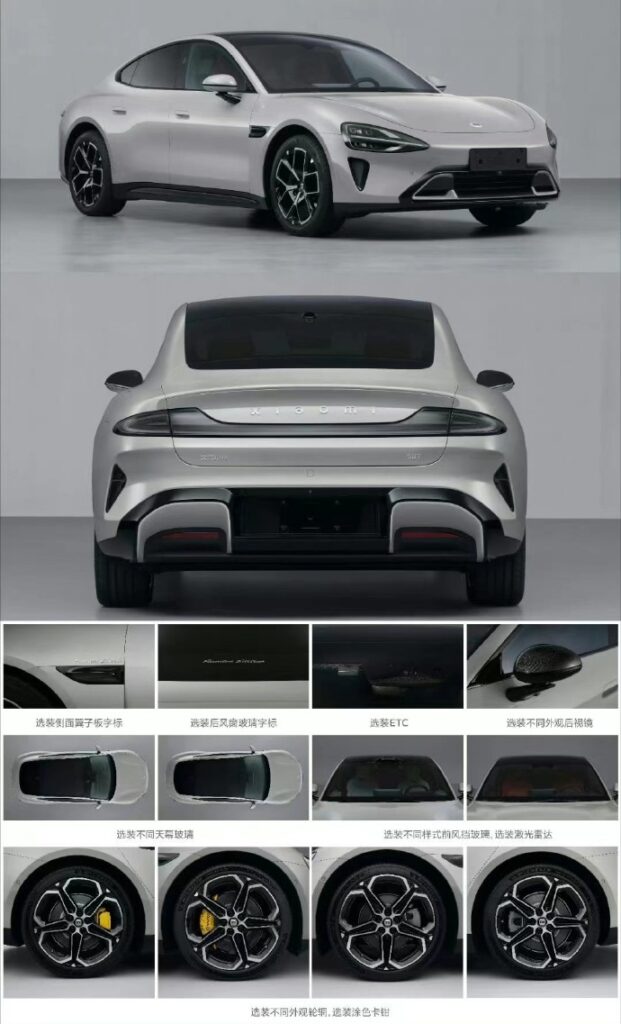Xiaomi’s car is scheduled for official mass production in the first half of 2024, with the factory in Beijing’s Yizhuang already completed and an annual production capacity of 150,000 vehicles. There are rumors suggesting Xiaomi will inherit the production qualification of Baowo cars. Lei Jun’s revelations on Weibo and the latest photos make people believe that Xiaomi’s car is about to debut. Whether it will become the first generation of electric cars for young people remains an eagerly awaited prospect. In the first half of next year, we will witness the official debut of Xiaomi cars, unveiling the mysterious veil of this highly anticipated technological innovation.

Battery
As one of the most expensive components in electric vehicles, Xiaomi leaves no room for compromise in the battery department. According to automotive blogger Xue Dayou, Xiaomi utilizes a 800-volt fast-charging battery with a temperature of 101 degrees, giving Xiaomi electric cars a competitive edge in terms of range. Electric vehicles currently using 101-degree batteries generally boast a range exceeding 700 kilometers, and the 800-volt fast charging further alleviates user concerns about range anxiety.
Smart Driving
Xiaomi has been actively involved in the field of smart driving. Not only did it acquire the smart driving company Deep Motion, but it also led the investment in the leading domestic LiDAR company Hesai Technology. Combined with Xiaomi’s own background in image vision and AI technology, the company has a formidable presence in the field of smart driving. Photos reveal that Xiaomi cars are equipped with LiDAR on the roof, four ultrasonic sensors on the front and rear, and mm-wave radar on both sides of the rear. Such configurations have become standard in high-end vehicles, providing Xiaomi cars with powerful perception capabilities.
In addition, there is high anticipation for Xiaomi’s smart driving cockpit. As a long-term partner of Qualcomm, Xiaomi is likely to use the 8155 or subsequent 8295 chip to power the in-car system. With such a high-spec chip paired with the MIUI system, Xiaomi is poised to gain a competitive advantage in the market.
Price
Despite its powerful features, Xiaomi’s first car faces a crucial challenge: the price. On social media, expectations for the price of Xiaomi cars vary widely, with some hoping for a price of 59,900 yuan, others willing to pay 99,900 yuan, and some suggesting 149,900 yuan. In a Weibo poll, Lei Jun showed that most Mi Fans hope the car’s price stays below 150,000 yuan. As competitors engage in fierce price wars, Xiaomi, as a brand primarily targeting young people, must offer an attractive price to secure its position in the market.